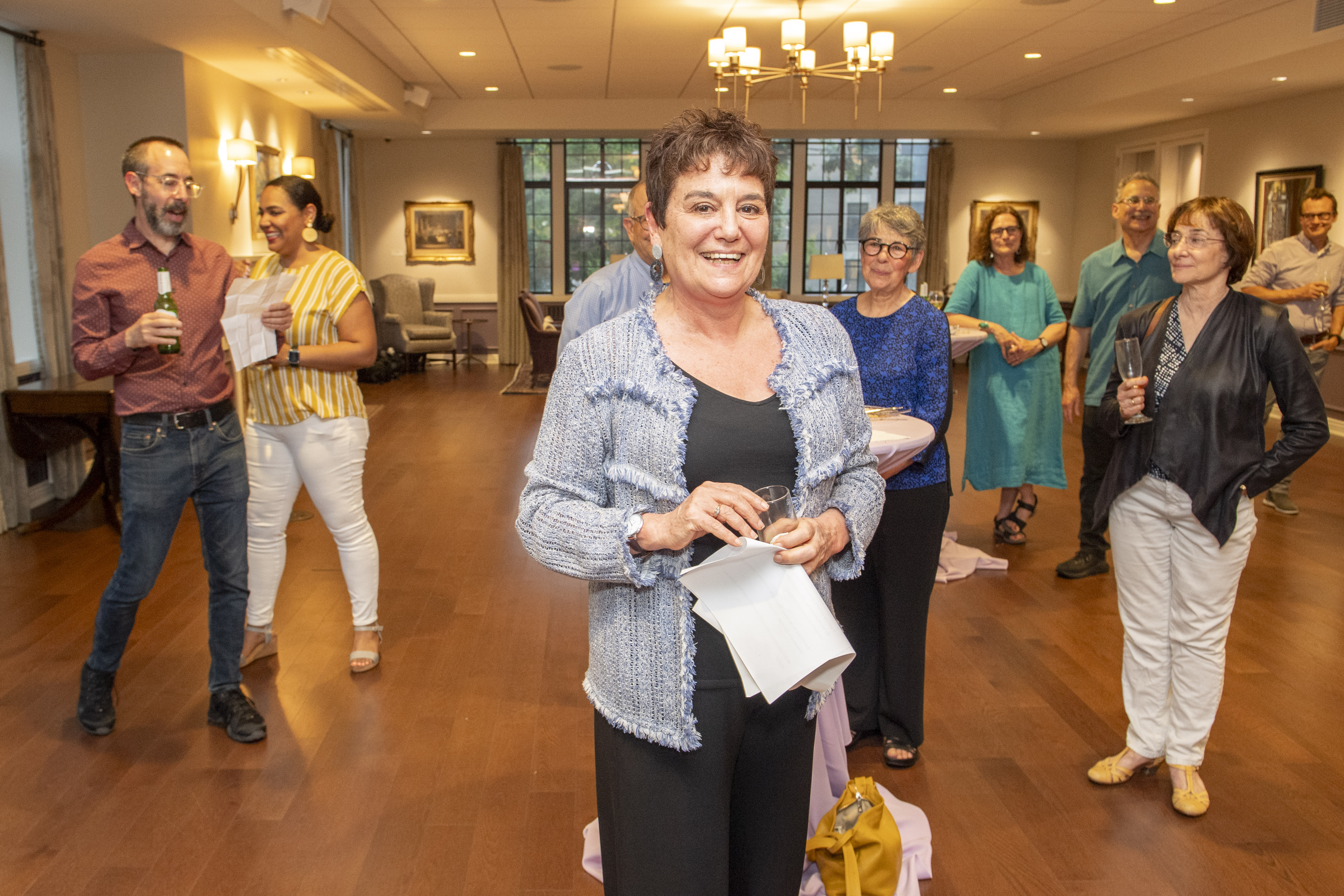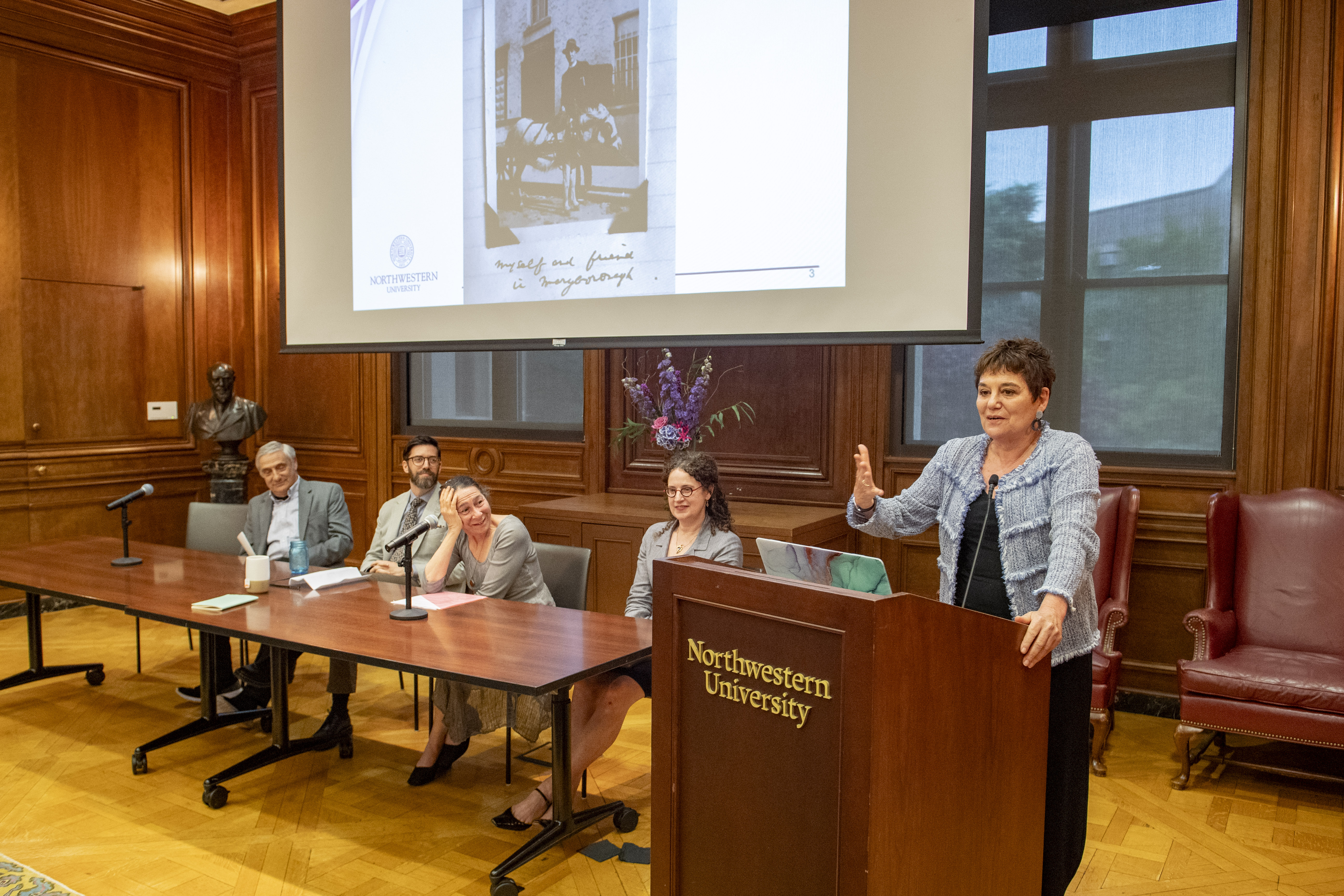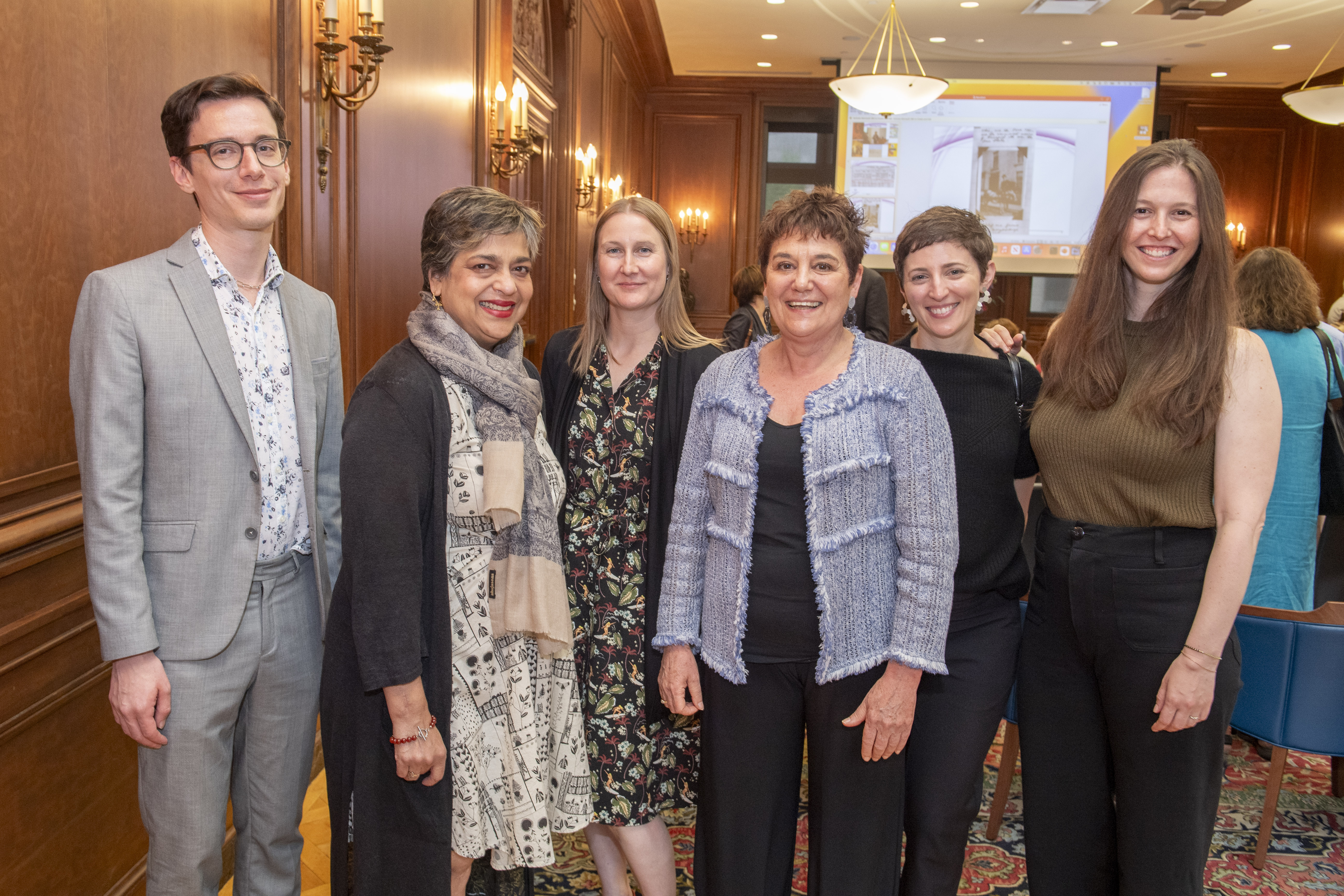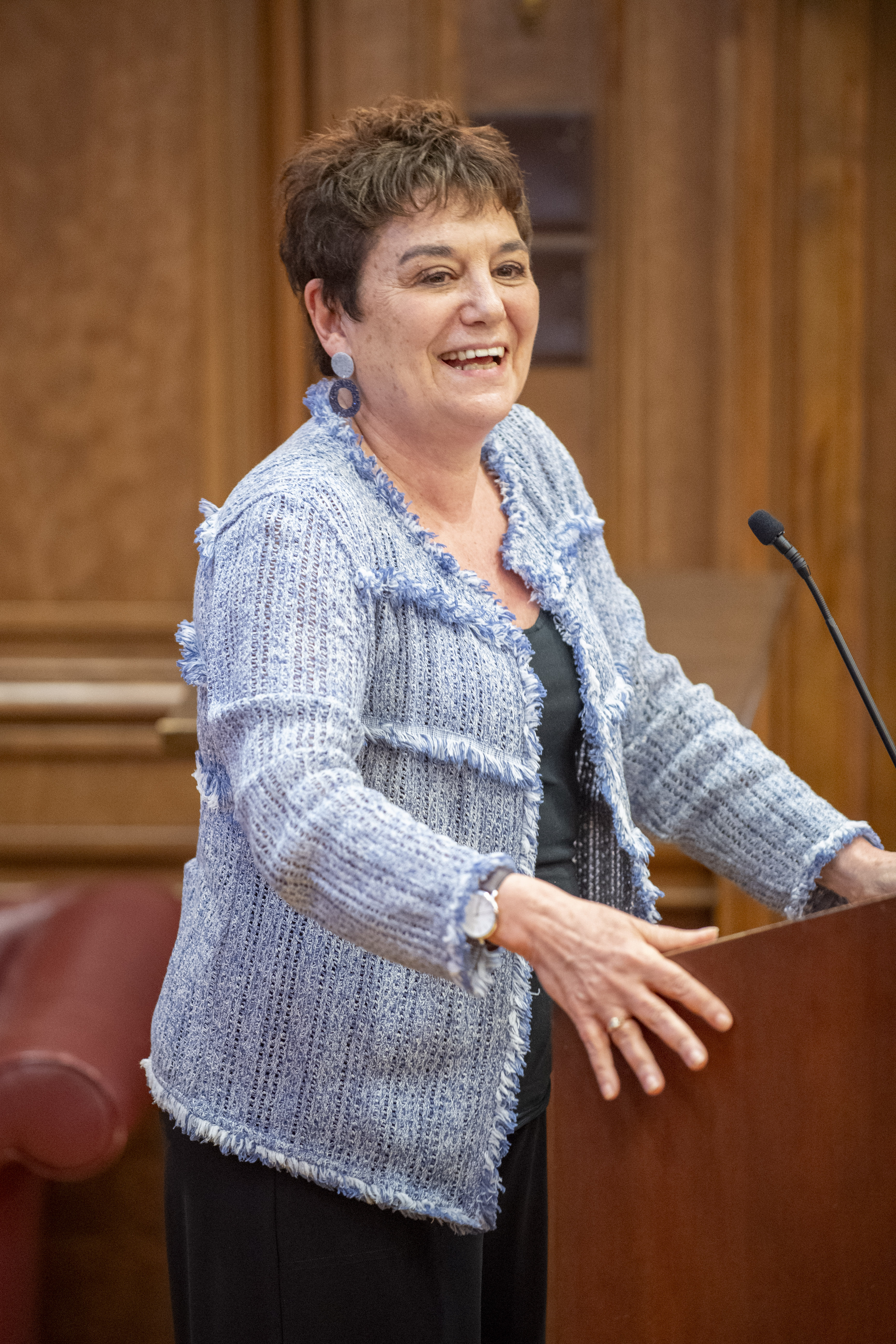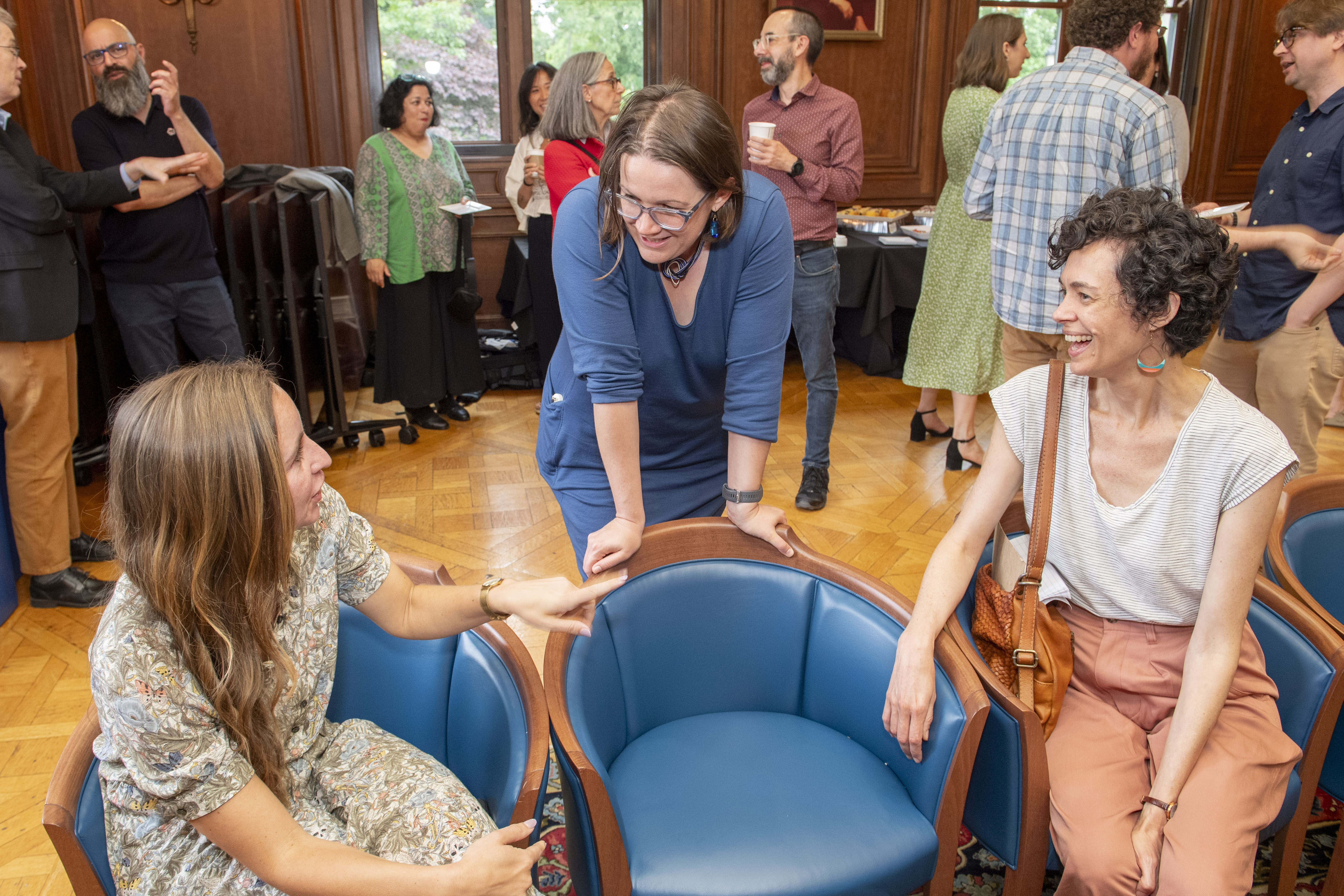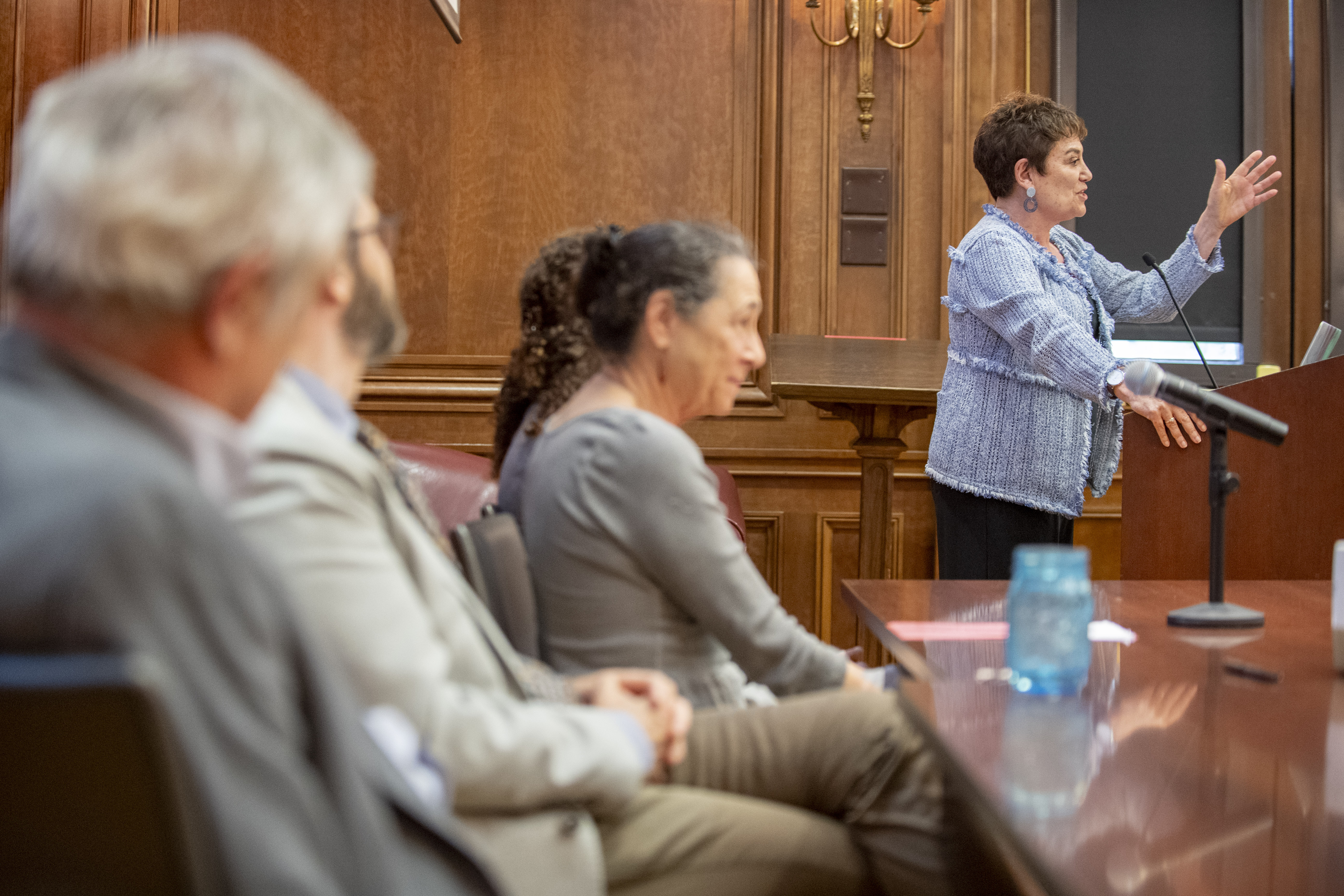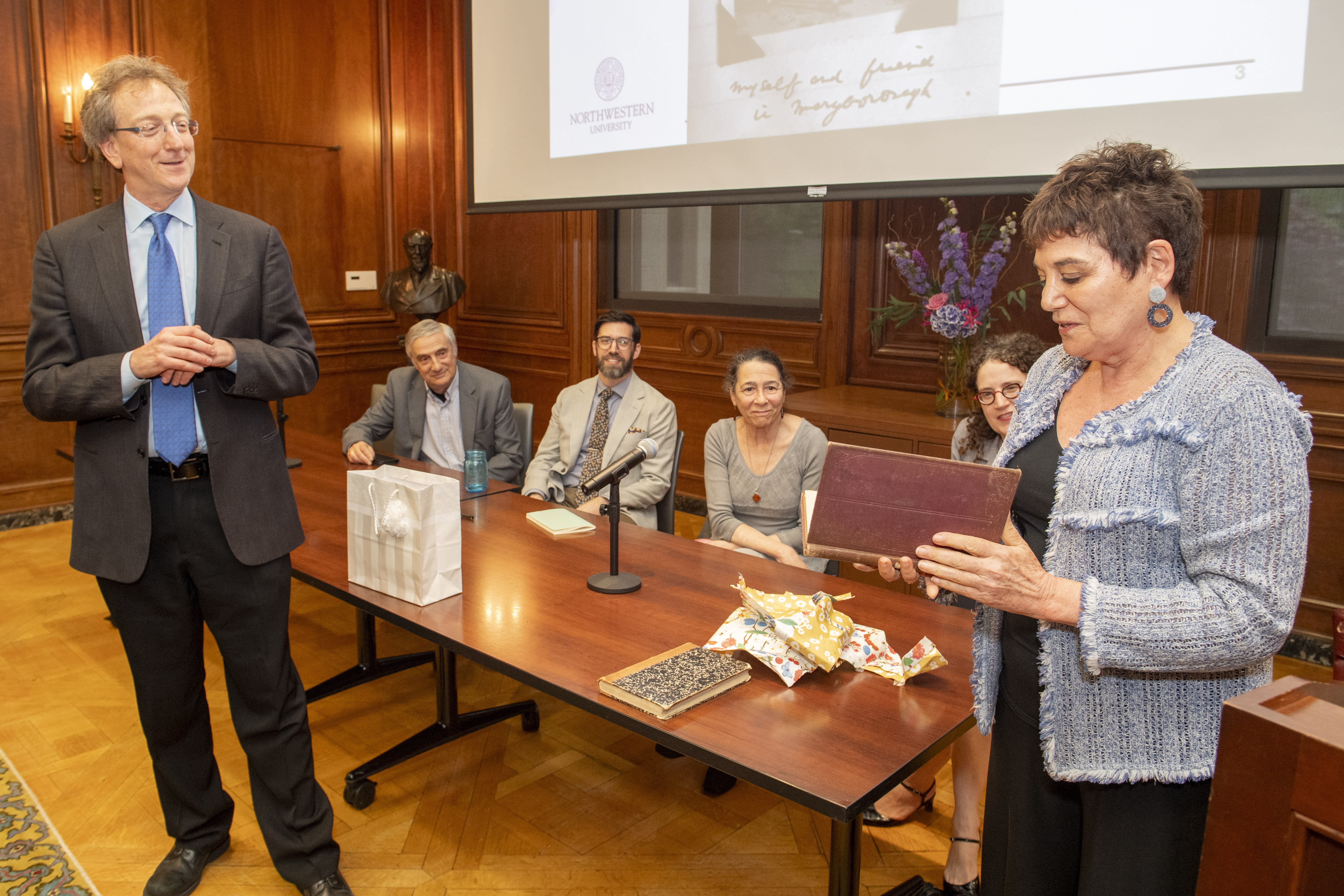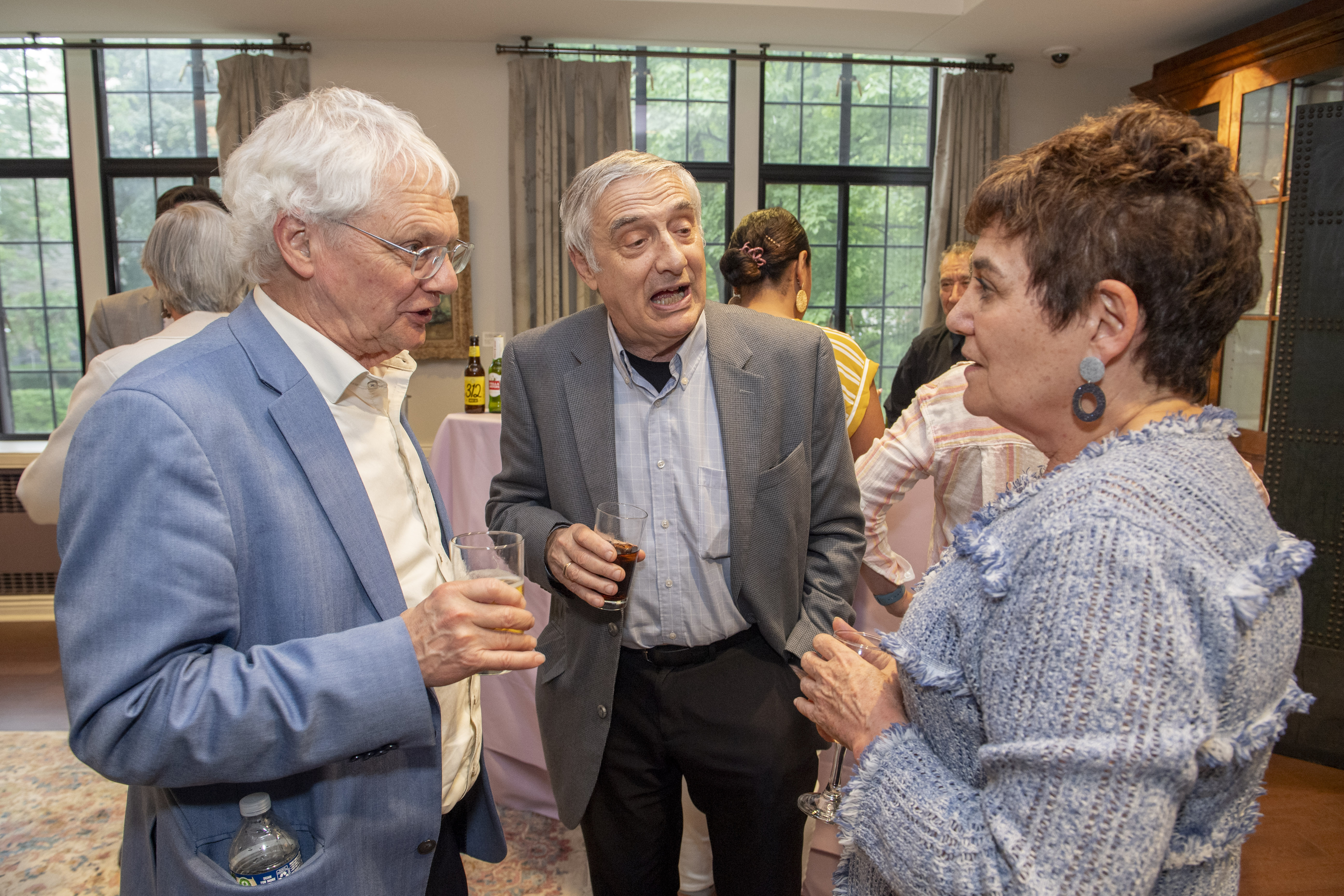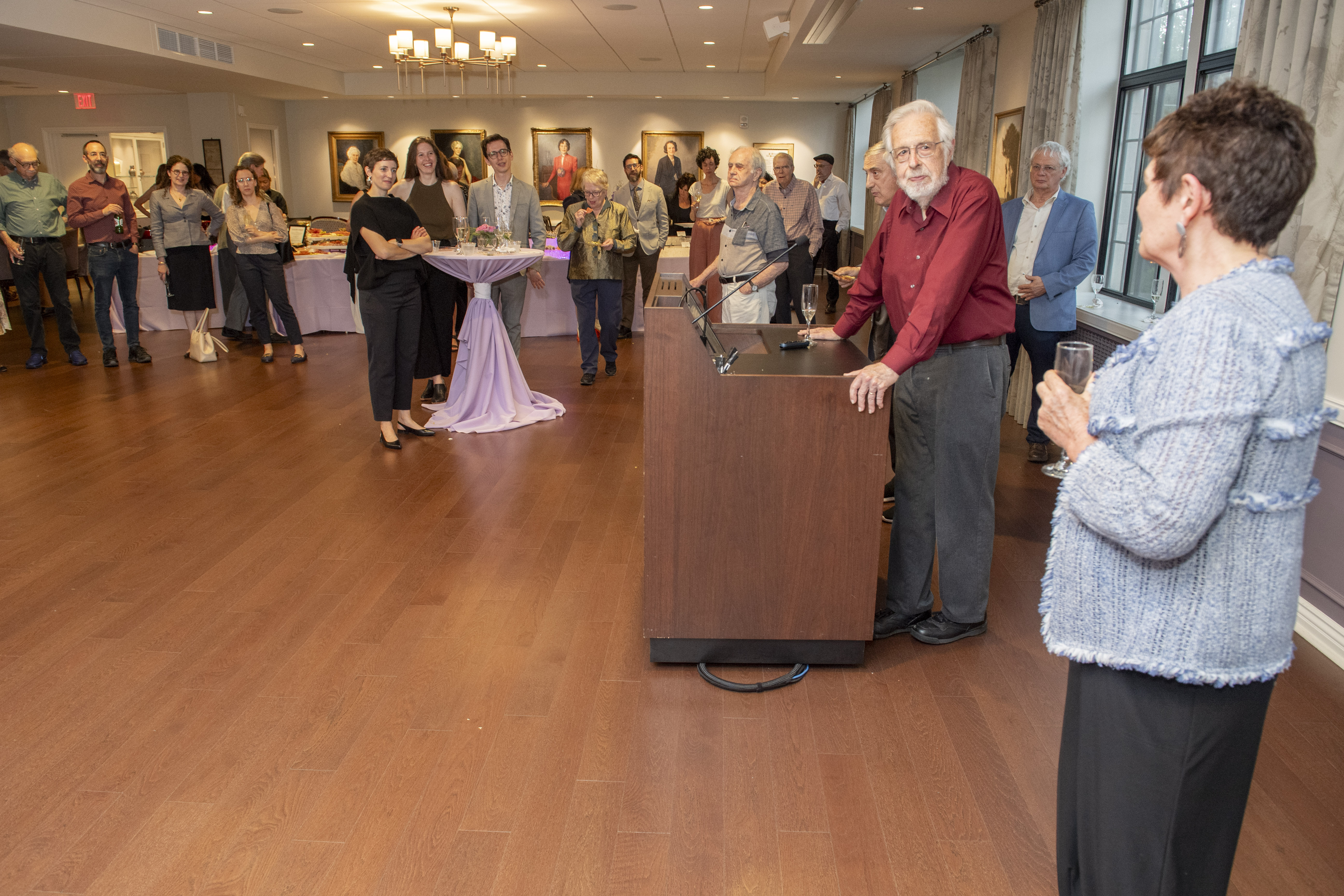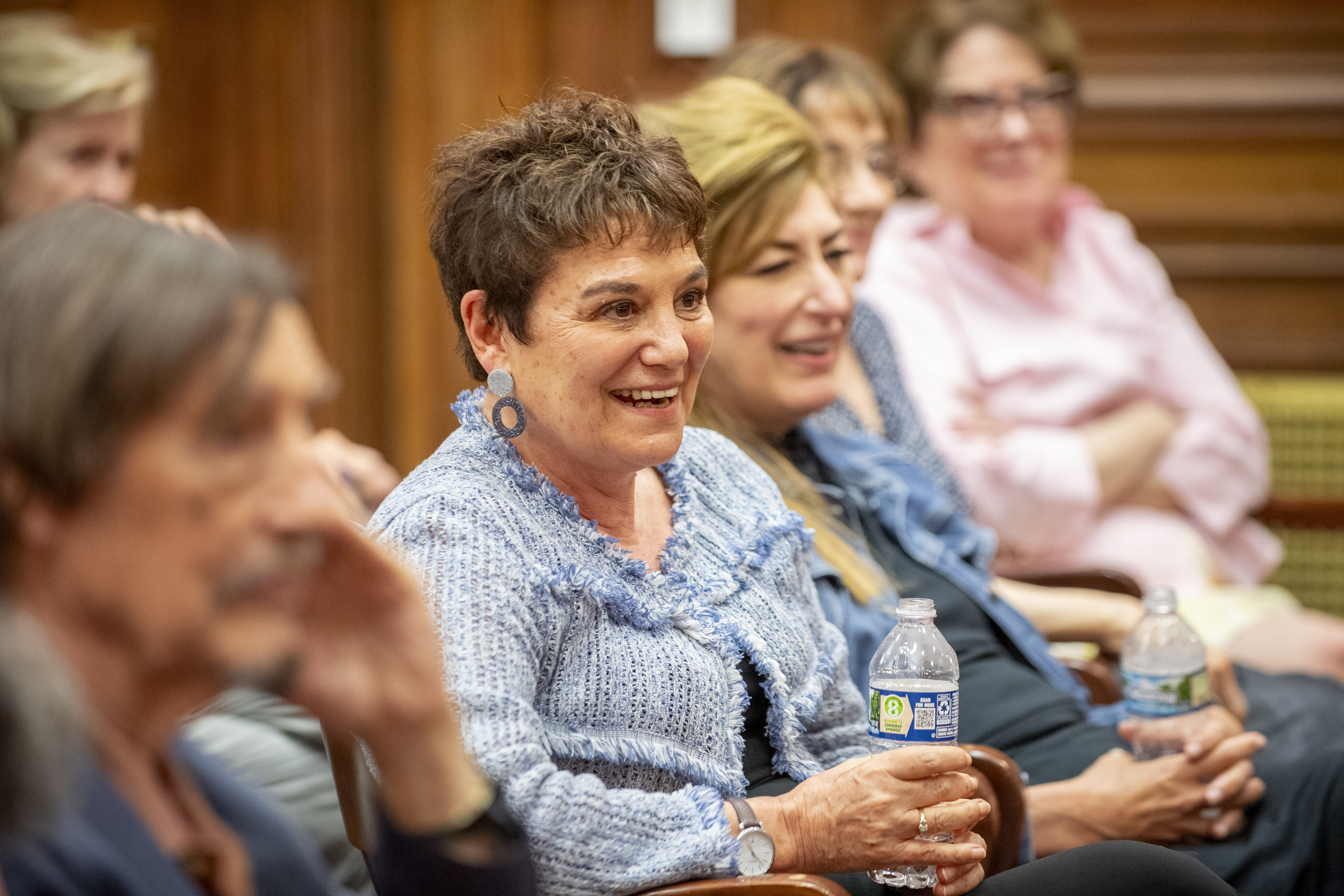Retiree Spotlight: Sarah Maza
“Homage to Sarah”
By Ken Alder
On June 4, 2024, the History Department and guests gathered in Harris Hall to fête the career of Sarah Maza on the occasion of her retirement. The mood was elated, even mirthful, while speakers celebrated Sarah’s 45 years in French and cultural history, and her 45 years in Northwestern’s History Department, where she arrived as an assistant professor at the precocious age of 25. (Please don’t do the math!) Much as Sarah’s scholarship entwined private lives with public affairs, the talks that day blended her academic achievements with her life as a colleague and friend.
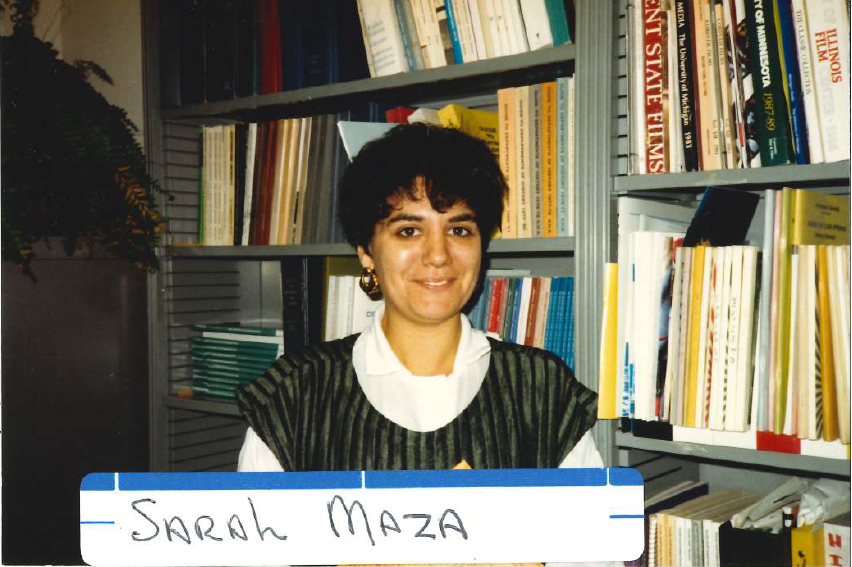
We heard from Sarah’s field colleagues: Suzanne Desan (Madison), Lynn Hunt (UCLA), Colin Jones (Chicago), and Lloyd Kramer (UNC)...; her former graduate students: Mita Choudhury (Vassar), Erin-Marie Legacey (Texas Tech), Meghan Roberts (Bowdoin), Blake Smith (Newberry), and Jessica Woodhouse (NU Law)...; and finally her colleagues in Harris Hall: Deborah Cohen, Laura Hein, Daniel Immerwahr, and Joel Mokyr...., all emceed by yours truly, Ken Alder. We enjoyed an elegant lunch before the talks, and a lively reception after, with more drinks and more toasts. What can I say: it was a fabulous fête!
Suzanne Desan started us off with our day’s theme: Sarah’s brilliant ability to excavate the meaning of a story—and tell one. She has analyzed how clever Old Regime lawyers retailed stories of family scandal to indict the corruption of the Old Regime. She has retold the melodramatic trial of the young parricide, Violette Nozière, which began as one of the era’s fait divers and wound up as a touchstone for 1930s France. There are stories people tell to make sense of their lives. There are stories historians tell to make sense of the past. Sarah makes sense of both.
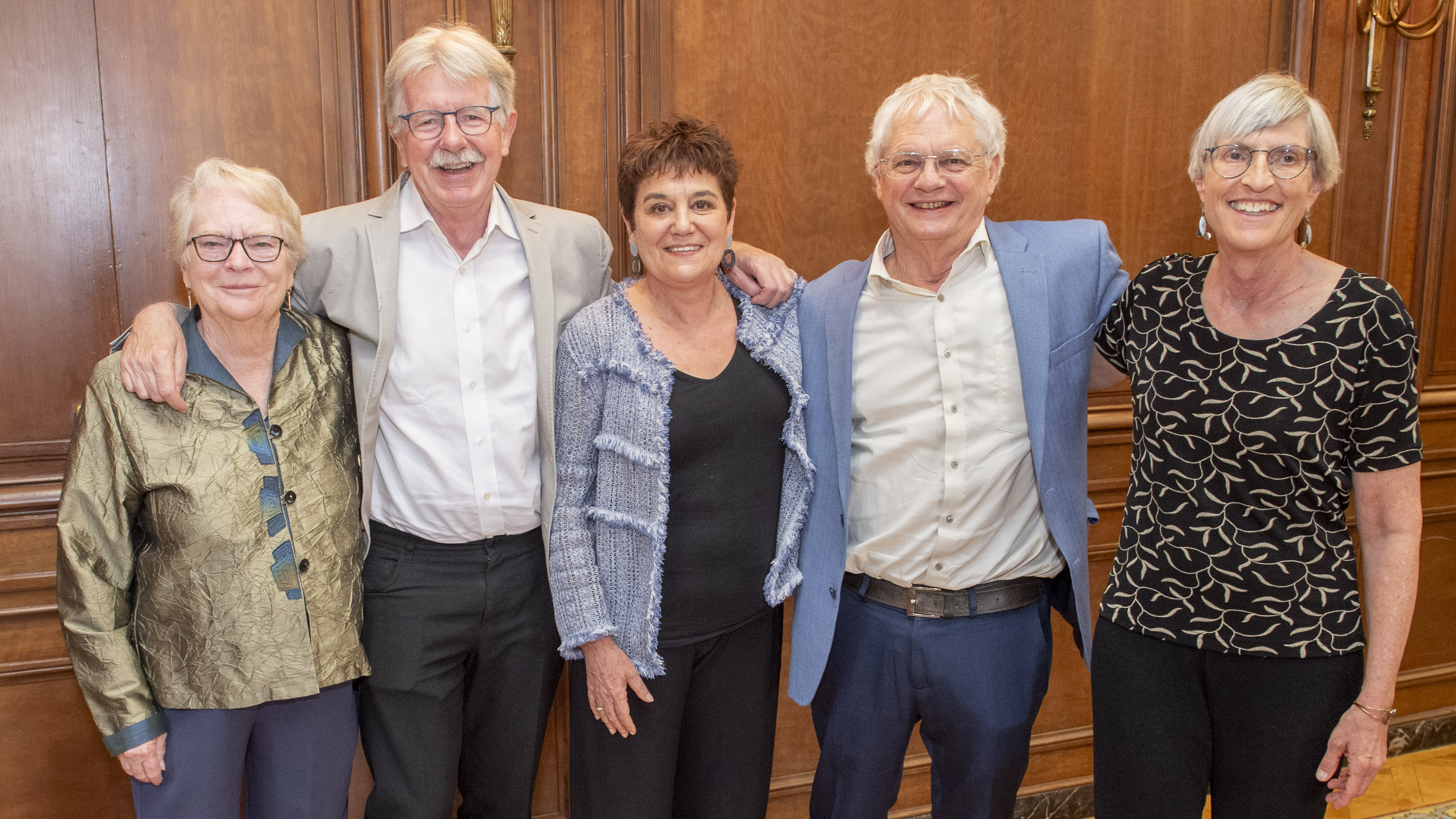
Sarah’s own story, we learned, has also unfolded in two registers. Raised in Aix-en-Provence by a Jewish-American father and an Anglo-Irish mother, she had a bilingual inheritance. At university she studied with Michel Vovelle, the heterodox Marxist historian of the French Revolution who helped inaugurate the study of revolutionary mentalités. Then for her doctoral studies, she came to Princeton, where she worked with Robert Darnton, Natalie Zemon Davis, and William Sewell, when cultural history was taking a bold new direction. Recommending his youthful advisee to a Northwestern colleague, Darnton described how Sarah had “zoomed through our program with ease and grace.” From the get-go, Sarah Maza had style.
When she arrived at Northwestern in 1978, she was one of only two women faculty in the Department. She stayed on through the “gender wars,” which gradually brought the Department to parity. When her first book, Servants and Masters in Eighteenth-Century France was published in 1983 it arrived at the same time as another book on a similar topic. This happens surprisingly often. In years to come, Sarah would advise graduate students that it was no cause for despair. Every book has its voice. Olwen Hufton, who reviewed the two books together, called Sarah’s book “the more successful, thoughtful, analytic, careful, and useful to the historian, not least because it eschews any grandiose theory.” Well maybe, but Sarah never shied away from theorizing. The historiography of the French Revolution had by then taken a revisionist turn, and Sarah was one of its leading voices.
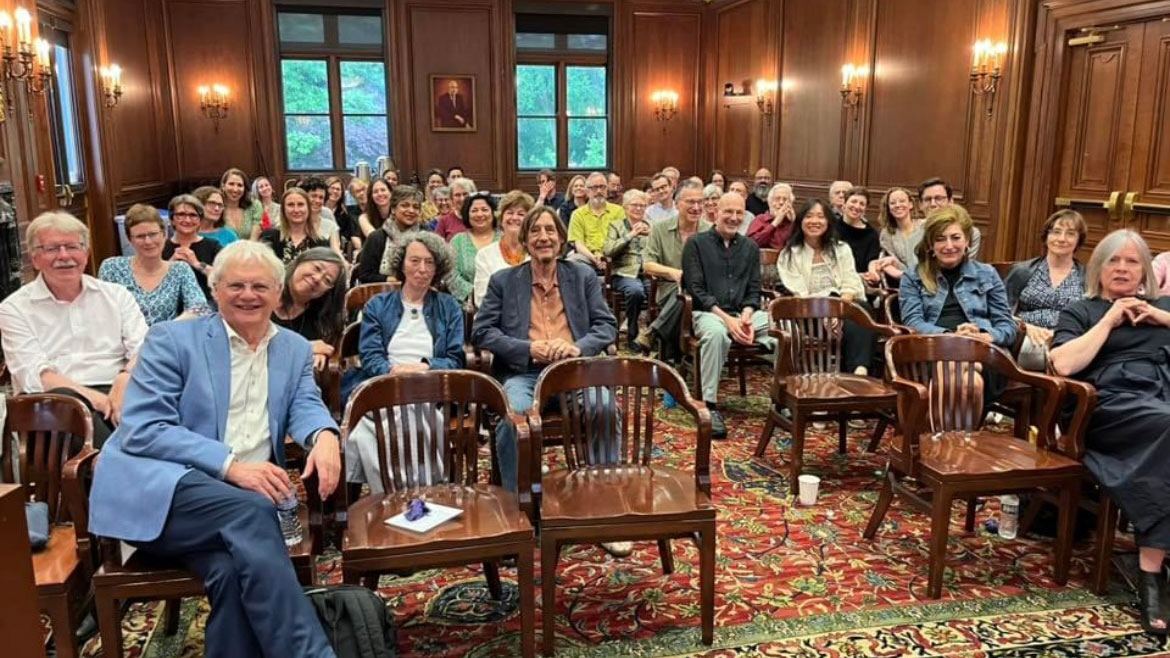
Her second book, Private Lives and Public Affairs (1995) took up the tension between the emerging public sphere and the Old Regime monarchy by explaining how the dramas of private life paradoxically set them at odds. The book was a model of the new cultural history, attentive to the power of stories to shape politics. It is organized around a rich documentary source, the legal dramas told in judicial mémoires. Sarah showed how the reading public, which had initially devoured these mémoires as a form of juicy entertainment, eventually came to feel these stories had summoned them to sit in judgment on the Old Regime itself—and find it wanting. Sarah has always loved gossip and stories of people behaving badly. Sometimes, history is just a higher form of gossip.
The Myth of the French Bourgeoisie (2005) gave the revisionist turn an even bolder twist. What if the bourgeoisie—that ever-rising, ever-potent, ever-acquisitive class—was not so much a fixed social category as a figment of the French social imaginary? The book is brilliant, argumentative, and crackles with intelligence and verve. It is also, like all of Sarah’s work, written with grace. Sarah always wears her learning lightly. Sure, the book caused controversy. In Harris Hall, Colin Jones made a comic-plaintive plea to us for the resurrection of the bourgeoise. For Sarah, this is the sort of disagreement which gives life to scholarship. As one colleague put it: “Sarah is one of the most genuinely intellectually curious people I’ve ever known: she likes to court a healthy debate and seems a tad disappointed when everyone is like-minded.” Meghan Roberts recalled the time that Sarah first introduced her to Colin at a history conference, and a friend expressed surprise that the two had remained fast friends, despite their disagreements in print. Mais bien sûr!
In Thinking about History (2017), Sarah surveys a full range of historical methods, using vivid examples to show how history keeps posing new questions. Lloyd Kramer’s exegesis of the text demonstrated how Thinking is a wonderful teaching book because it never feels didactic.
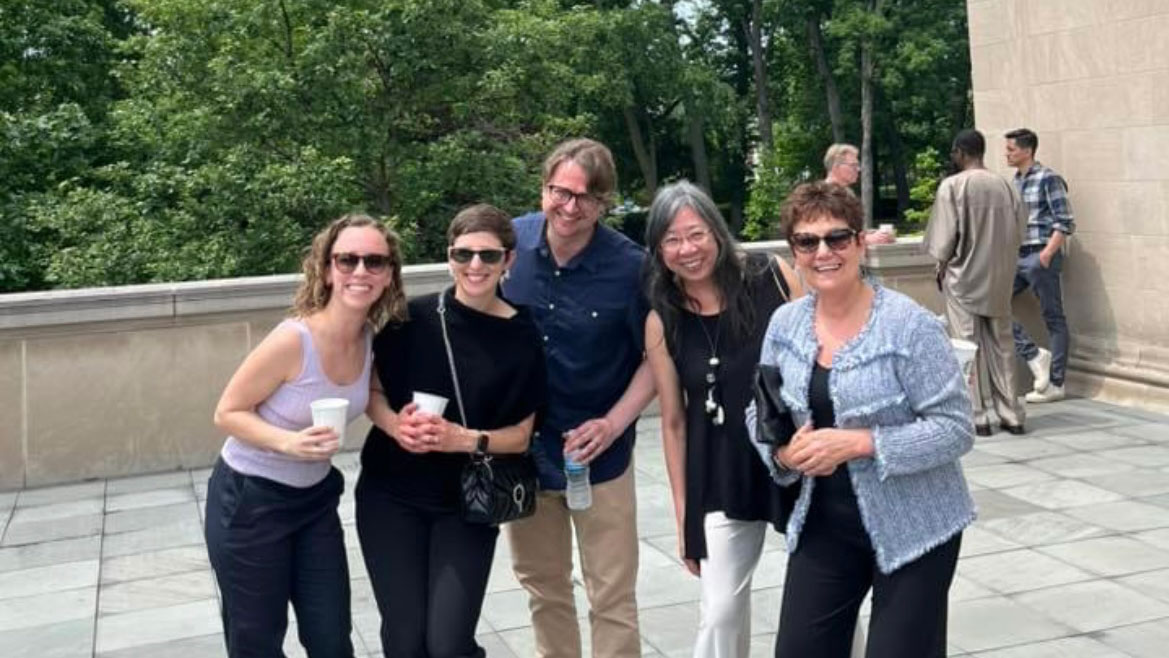
Yet even as she amassed grants, prizes, promotions, elections, and a professorship, Sarah remained an encouraging mentor and generous colleague in Harris Hall. Her students praised her mix of kindness and high standards. She pressed them to clarify their arguments and write jargon-free prose, even as she gave them confidence in themselves. Roberts said, “she gave feedback in a way that showed she believed I could handle the task before me.” In recent years Sarah also inaugurated the Department’s new “Mapping the Discipline” course, which introduces first-year grad students to historical methods.
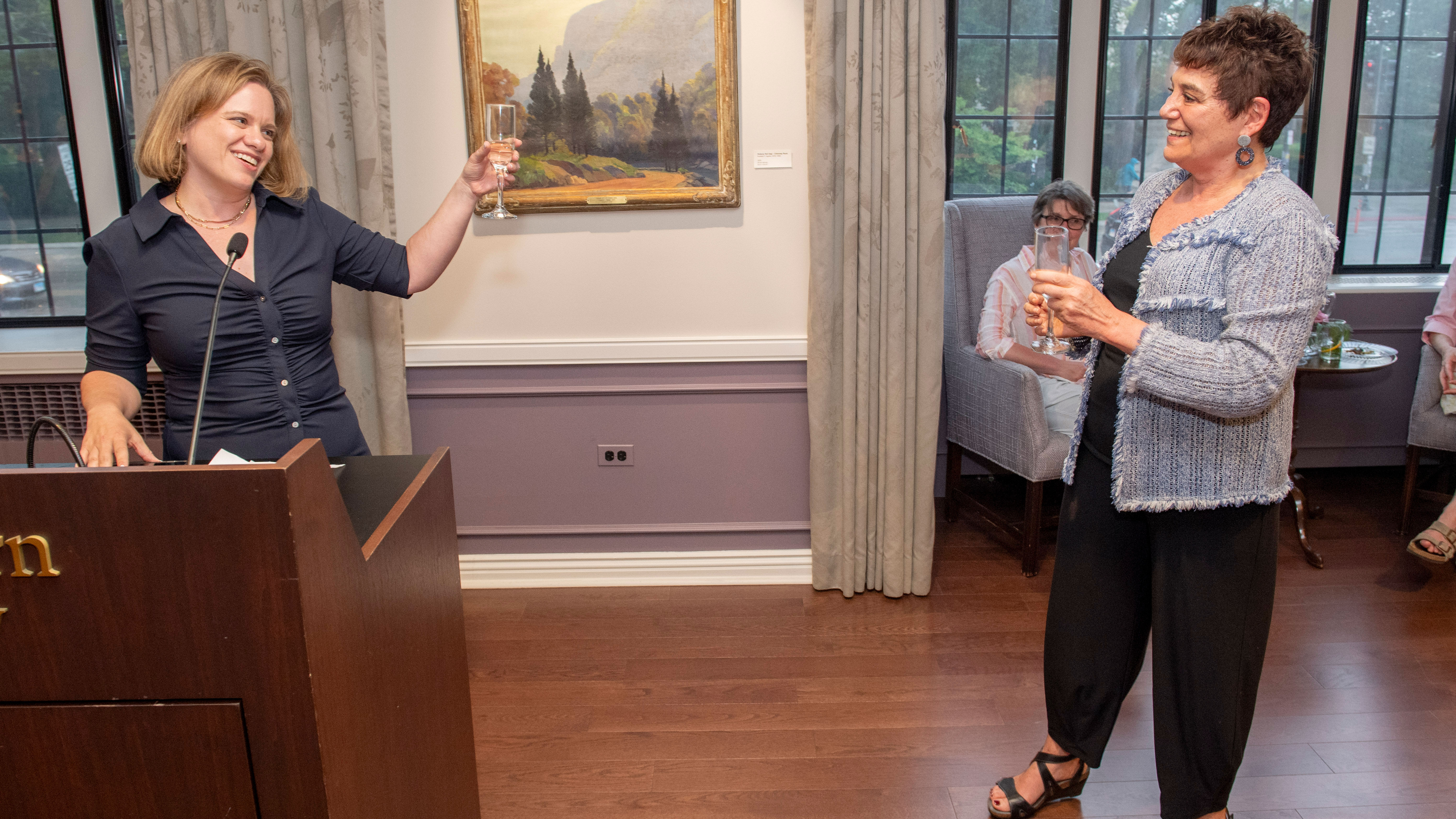
Indeed, by then, she and her husband, Sean Shesgren, had their own lovely daughter. Juliette, who was in attendance at the fête, ruefully admitted she was probably the only person there who had never read any of her mother’s books, but that she planned to start that very evening.
Sarah is perpetually reaching out for new topics, new questions, new forms of scholarship. She has written sparkling essays on the diamond necklace affair which implicated Marie-Antoinette, the category of childhood and the meaning of toys, the Gorgons who guard the Bibliothèque Nationale, and (most recently) historians’ current debate over Presentism, due to appear in print in 2025 in Past & Present. And there is more Sarah still on the books. She may have retired, but she is deep into her current project, which reaches across the Atlantic to compare the French reception of Uncle Tom’s Cabin with the American reception of Les Misérables. Her retirement gift was a first edition of each.
Toasts and further revelry ensued.

